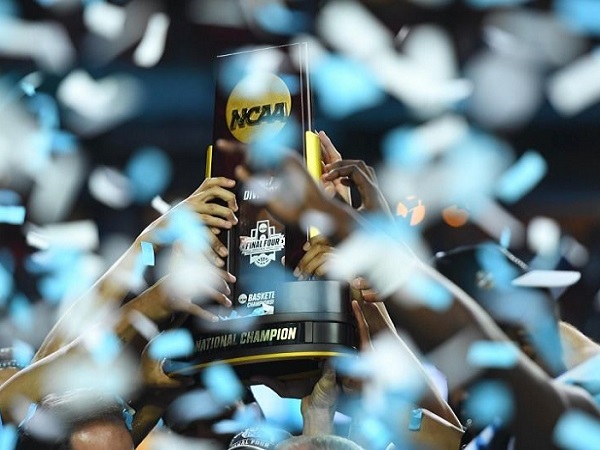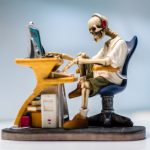Artificial intelligence (AI) is all the rage. Every major company seems to be utilizing the human-fed computer generated knowledge to help make business decisions. However, in entertainment, the industry has been resistant possibly because of the creative aspect and pressure from the Guilds to algorithms, data, and analytics to the point where they have been denied entry into the club.
In media, AI is used to help write recap and sports articles. AI, at least according to public knowledge, is not being used in sports in terms of determining rosters of players or even front office talent, but the current road to analytics could lead there. Media, specifically articles regarding sports game recaps seems to be the one business that uses AI the most of the entertainment, media, and sports industries.
At first glance it would seem to make sense that using any added intelligence to collect and organize information to help make decisions might be a good thing. There are problems that arise with any computer approach using analytics and artificial intelligence, however. Here are a few of them that may be on the minds of executives and creatives in the entertainment space.
1. Attack on Creativity?
With the Warner Bros. studio the first in Hollywood, at least publicly, to announce the use of an AI management as part of the filmmaking process, one executive commented that “Artificial intelligence sounds scary. But right now, an AI cannot make any creative decisions. What it is good at is crunching numbers and breaking down huge data sets and showing patterns that would not be visible to humans. But for creative decision-making, you still need experience and gut instinct.”
It seems that for now AI is being limited to collecting and analyzing large sets of customer data to help determine trends in terms of what is liked and disliked by consumers. That seems to be a long way of saying that AI is not controlling the decision-making, but it is influencing the process. This makes sense because data should influence decisions, but not make them. Any AI decision that limits the creative process is likely to be met by significant backlash from the Hollywood Guilds through new AI-restrictive rules and strikes.
2. Less jobs?
An interesting topic and one that has been debated extensively. The argument goes that where computers dominate, people are theoretically eliminated or become obsolete as computers do their jobs. However, the data may say different. In sports for example, the advent of analytics in baseball, basketball, football, and hockey has led to more jobs.
A fantastic article via ESPN shows that analytics departments have led to hiring. The issue is the types of jobs. Jobs that require technical, math, science, and analytics skills. The Los Angeles Dodgers for example are rumored to have a substantial analytics department of at least thirty employees that are statisticians of some sort.
A simpler argument might be that it takes people to run and feed the computer. That sense of control and monitoring is likely needed as well. Otherwise, Earth’s inhabitants might meet their worst Terminator fears. Entertainment studios and streamers have been hiring analytics professionals for years. Legendary Entertainment famously started Hollywood down the path of analytics when they supposedly introduced an algorithmic-model that led to films reaching all four quadrants of the moving-going population (e.g., to sell more tickets).
3. Too much of one thing is a bad thing!
The bottom line is that too much of one line of thinking is a bad thing. Entertainment science is nothing different than sports or business industry science. (See Hennig-Thurau, Thorsten & Houston, Mark. (2018). “Entertainment Science: Data Analytics and Practical Theory for Movies, Games, Books, and Music”.) Ideas and data should not be read in a vacuum. Data must be combined with theory and experience (gut thinking) to help determine the best outcome. No human or computer is omniscient. Bad decisions will continue to be made as long as humans and computers populate the Earth. However, studios might be better off utilizing all resources to help make decisions, and again that includes data, theory, and experience.























